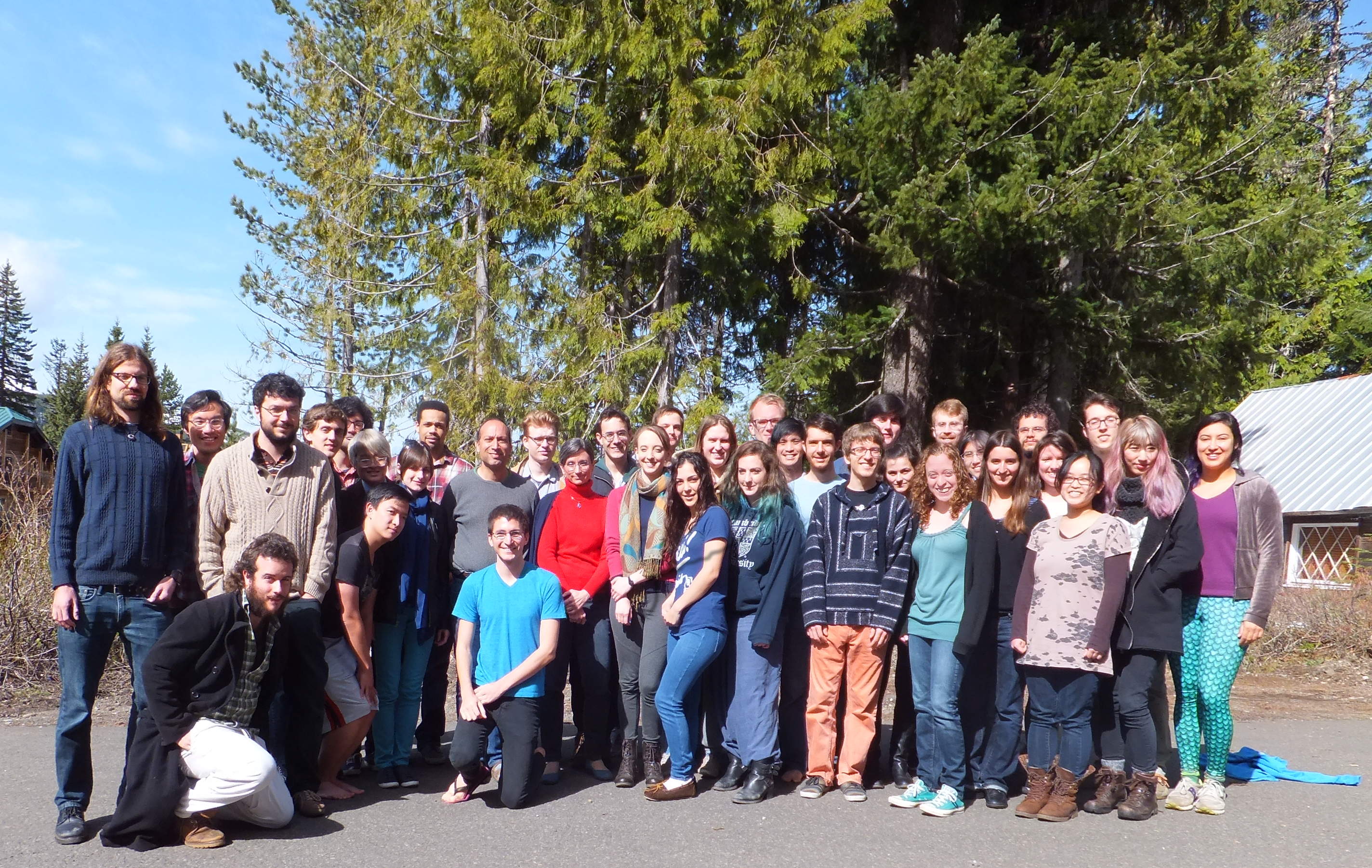Talbot 2015: Little Disks Operads
Mentored by Kathryn Hess and Dev Sinha
April 5-11, 2015
Mt. Hood, Oregon

Topic: The 2015 Talbot workshop, aimed toward graduate students and other young researchers, gave an introduction to the homotopy theory of little disks operads and its applications.
Operads encode certain types of algebraic structure, in much the same way that groups encode symmetries. Operad theory was born during the systematic study of iterated loop spaces by researchers such as May and the team of Boardman and Vogt. A family of operads known as the little disks operads can be used to characterize and unify operations in the homology of iterated loop spaces, and were used to show for example that the classifying space for PL bundles is an infinite loop space. Thus these important spaces in (high-dimensional) geometric topology have homology that is bound together by such operations.
With apologies to such rich, currently active topics as string topology and the calculus of homotopy functors, we focused in this workshop on three applications of operads, in all of which the little disks operads play a central role: spaces of embeddings (including classical knot theory and the study of deloopings of such spaces), deformation quantization, and the Grothendieck-Teichmüller group. Kontsevich pioneered the application of operads in all of these areas, which have subsequently proved to be fruitful ground for algebraic topologists.
Two technical aspects of the subject recur throughout these applications, namely the homotopy theory of operads as defined through a model category structure and the interplay between geometry and topology of configuration spaces through constructions such as compactifications and graph theoretic models of their de Rham theory.
Mentor: The 2015 Talbot workshop was mentored by Prof. Kathryn Hess of EPFL and Prof. Dev Sinha of the University of Oregon.
Format: The workshop discussions had an expository character and most of the talks were given by participants. The afternoon schedule was kept clear for informal discussions and collaborations. The workshop took place in a communal setting, with participants sharing living space and cooking and cleaning responsibilities.
Timeline: The 2015 Talbot Workshop is over. Check back later in the fall for information about the 2016 Talbot Workshop.
Funding: We cover all local expenses including lodging and food. We also have limited funding available for participants' travel costs.
Who should apply: Talbot is meant to encourage collaboration among young researchers, particularly graduate students. To this end, the workshop aims to gather participants with a diverse array of knowledge and interests, so applicants need not be an expert in the field. In particular, students at all levels of graduate education are encouraged to apply. Our decisions are based not on applicants' credentials but on our assessment of how much they would benefit from the workshop.
Contact Information: Please e-mail the organizers at talbotworkshop(at)gmail.com if you have any questions.